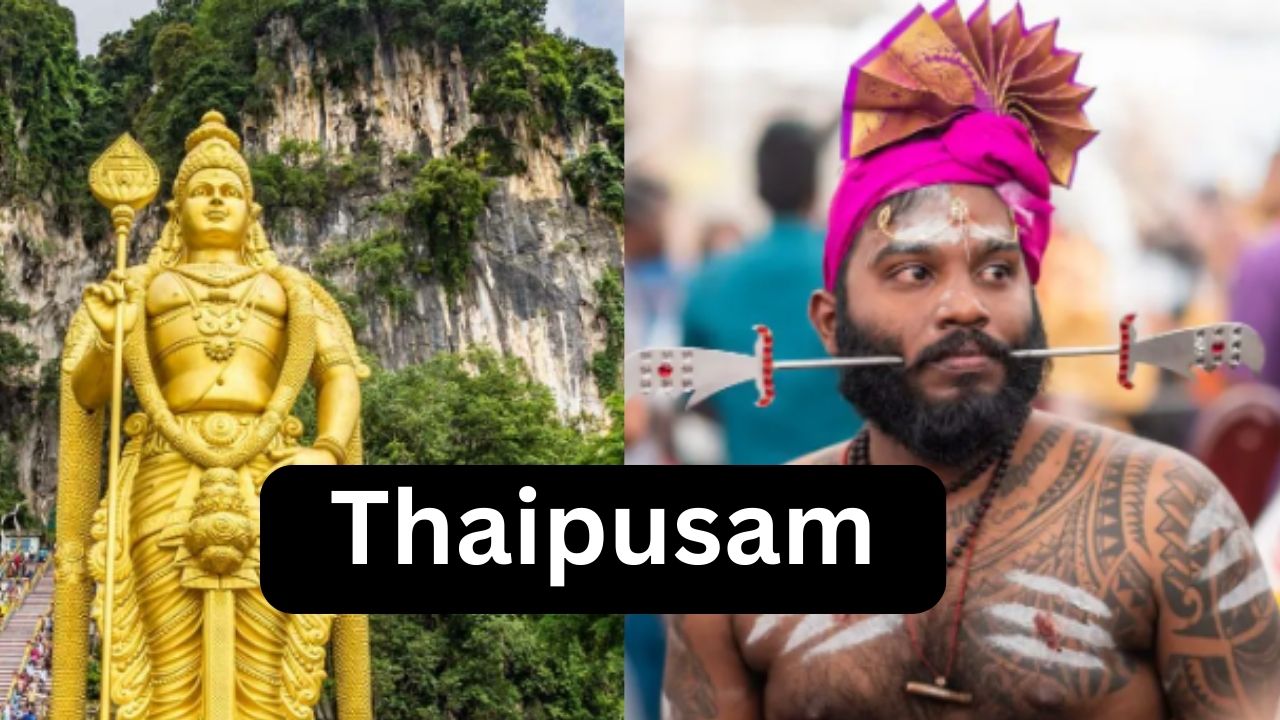What is Thaipusam:
Thaipusam is a Hindu festival that holds immense significance among the Tamil community, celebrated primarily by Tamil Hindus in various parts of the world. This auspicious occasion is dedicated to Lord Murugan, the Hindu god of war, and is observed during the Tamil month of Thai (January-February). Thaipusam is marked by grand processions, elaborate rituals, and acts of self-mortification, reflecting the deep religious fervor and devotion of its participants.
The Story of Idumban:
The story of Idumban revolves around a demon who becomes a devoted follower of Lord Murugan. Upon encountering a divine child, who is Lord Murugan in disguise, Idumban expresses his devotion by carrying the child on his shoulders. Lord Murugan tests Idumban’s loyalty by increasing the child’s weight, but Idumban remains steadfast. Impressed, Lord Murugan reveals his true form and grants Idumban a boon. Idumban requests that wherever he places the child down, it should become a sacred site for Lord Murugan. Lord Murugan blesses him and entrusts him with guarding the Palani hills. Later, a friendly competition between Idumban and another devotee named Avvai leads to the revelation of their shared devotion. Lord Murugan blesses them both and declares Palani as a sacred pilgrimage site for sincere devotees. The story emphasizes the transformative power of devotion and the inclusive nature of spirituality.
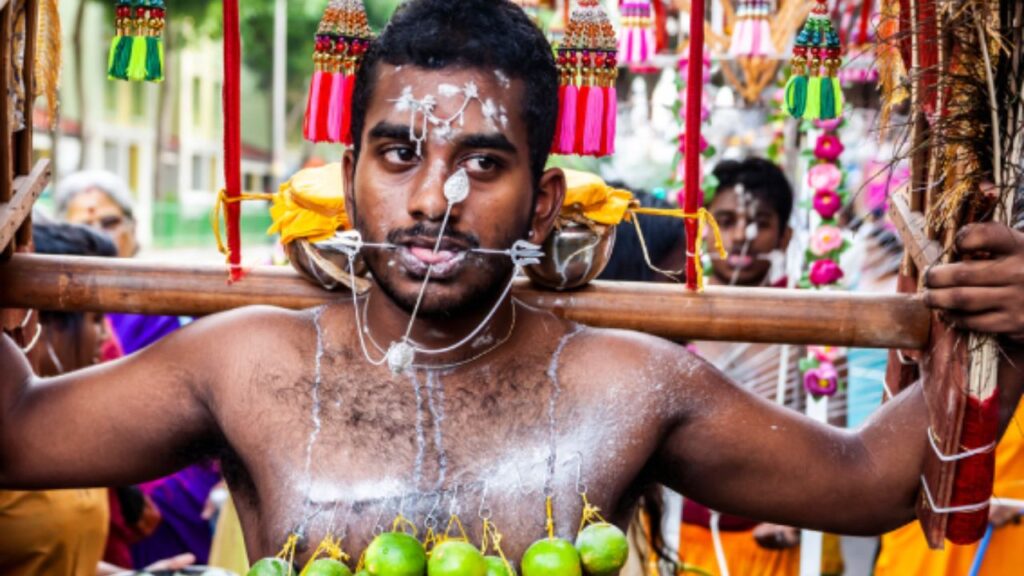
Lord Murugan and his Vel:
Lord Murugan, also known as Kartikeya or Subramanya, is a prominent Hindu deity associated with war, victory, and wisdom. Born from the third eye of Lord Shiva, he is often depicted with six faces, twelve hands, and riding a peacock. The Vel, his sacred lance, symbolizes divine authority and the ability to overcome obstacles. Lord Murugan is revered as the commander of the divine army and has a significant presence in temples, particularly in Tamil Nadu. Devotees seek his blessings for courage, victory, and spiritual knowledge.
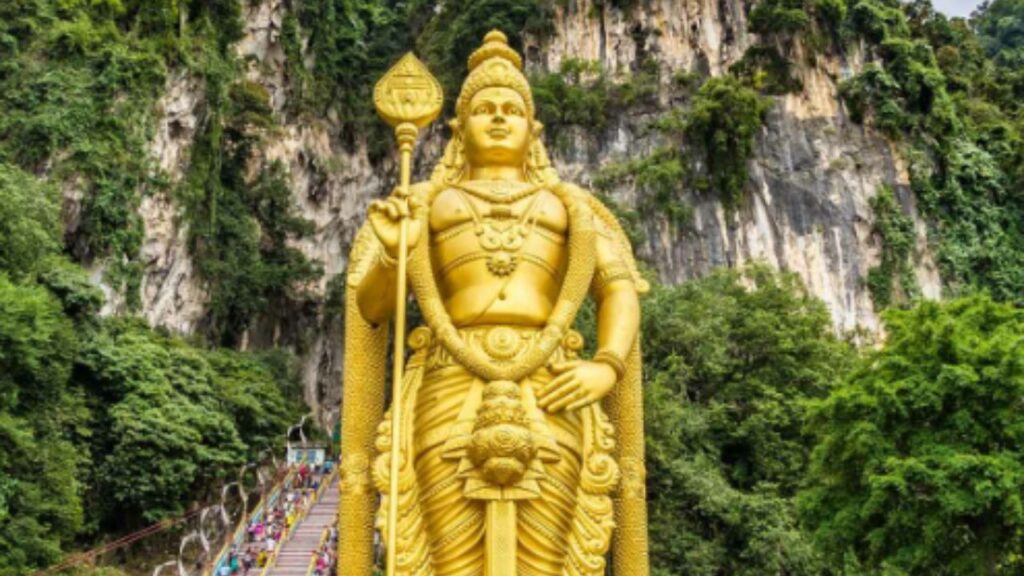
History and Significance:
Thaipusam commemorates the day when the Hindu goddess Parvati presented a spear to Lord Murugan to vanquish the demon Soorapadman. It symbolizes the triumph of good over evil and the power of divine intervention. Devotees believe that by participating in Thaipusam celebrations, they seek blessings, express gratitude, and fulfill vows made to Lord Murugan.
Preparations and Rituals:
The preparations for Thaipusam often begin weeks in advance. Devotees observe strict religious practices, engage in prayer sessions, and adhere to a vegetarian diet. The festival culminates in a grand procession, typically starting from a temple and proceeding to another, often ending at a Murugan temple. One of the most striking features of Thaipusam is the Kavadi Attam, a ritual in which devotees carry elaborate structures known as “kavadis” on their shoulders. These kavadis are ornate frameworks adorned with peacock feathers, flowers, and other decorative elements. The devotees, also known as “kavadi bearers,” demonstrate their unwavering faith by carrying these heavy structures, often pierced through their bodies with metal skewers.
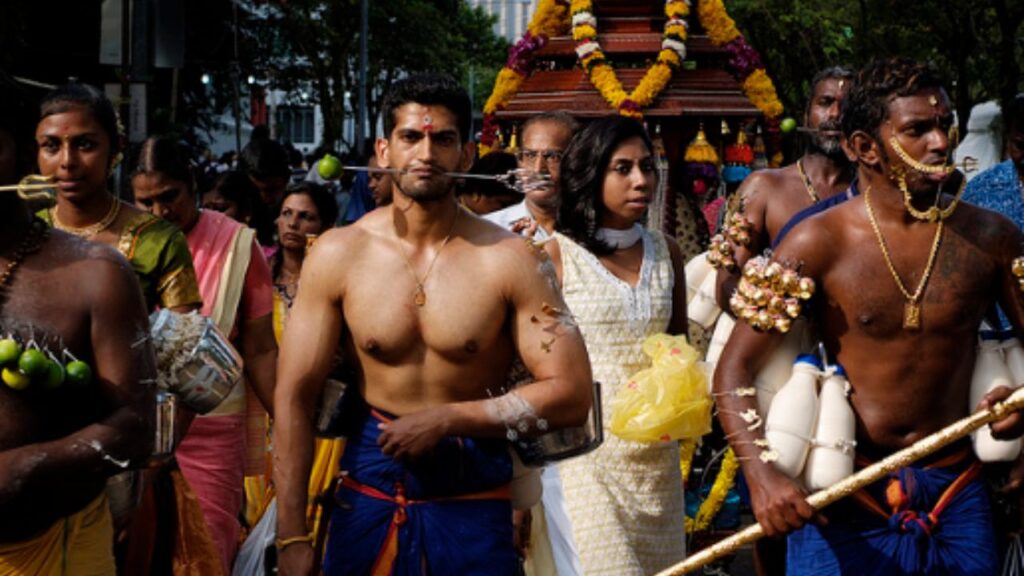
Piercing and Self-Mortification:
A significant aspect of Thaipusam is the act of self-mortification, where devotees pierce various parts of their bodies with sharp objects as a form of penance and sacrifice. This may include skewers through the cheeks, tongue, or other body parts. The belief is that enduring this physical pain purifies the devotee and strengthens their spiritual connection with the deity.
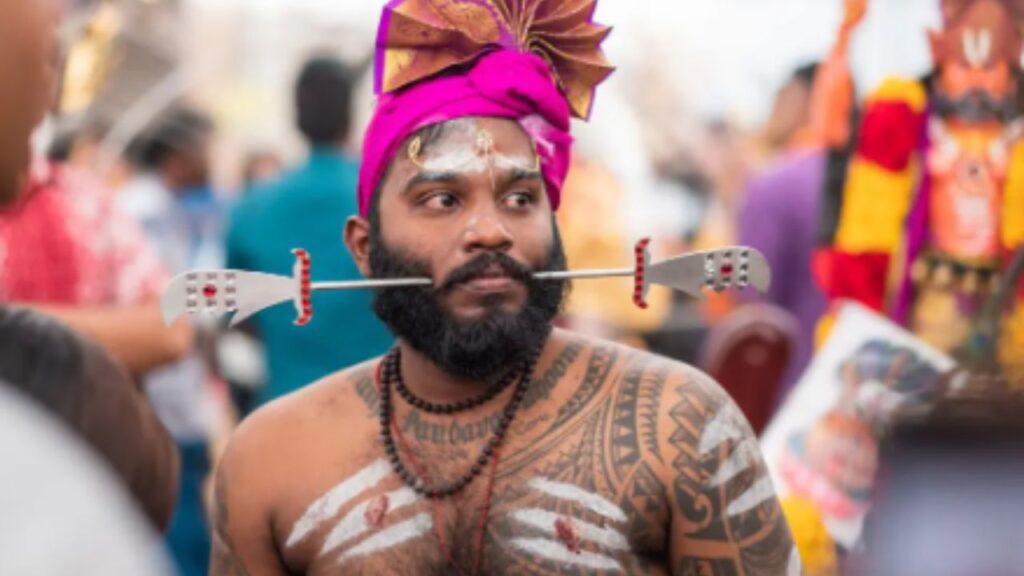
Devotional Music and Chants:
Throughout the Thaipusam procession, devotional music and chants fill the air. Traditional instruments such as drums and flutes accompany the rhythmic chants, creating a lively and spiritually charged atmosphere. The music enhances the sense of unity among the participants and intensifies the religious experience.
Community Participation and Hospitality:
Thaipusam is not only a personal journey of devotion but also a communal celebration. Families and communities come together to support the kavadi bearers, providing assistance and encouragement during the arduous procession. Devotees and onlookers often offer refreshments and meals to those participating in the festival, showcasing the spirit of hospitality and unity.
Carrying a Kavadi:
During Thaipusam, participants, known as kavadi bearers, carry kavadis as a significant part of their devotional and penitential practices. The kavadi is an elaborate structure, often decorated with various ornaments, flowers, and peacock feathers, symbolizing a burden that the devotee carries as an offering to Lord Murugan.
The kavadi itself can take various forms, ranging from a simple structure to more intricate and elaborate designs. Kavadi bearers typically carry these burdens on their shoulders, and in some cases, they may also attach the kavadi to their bodies through piercings, such as skewers through the skin.
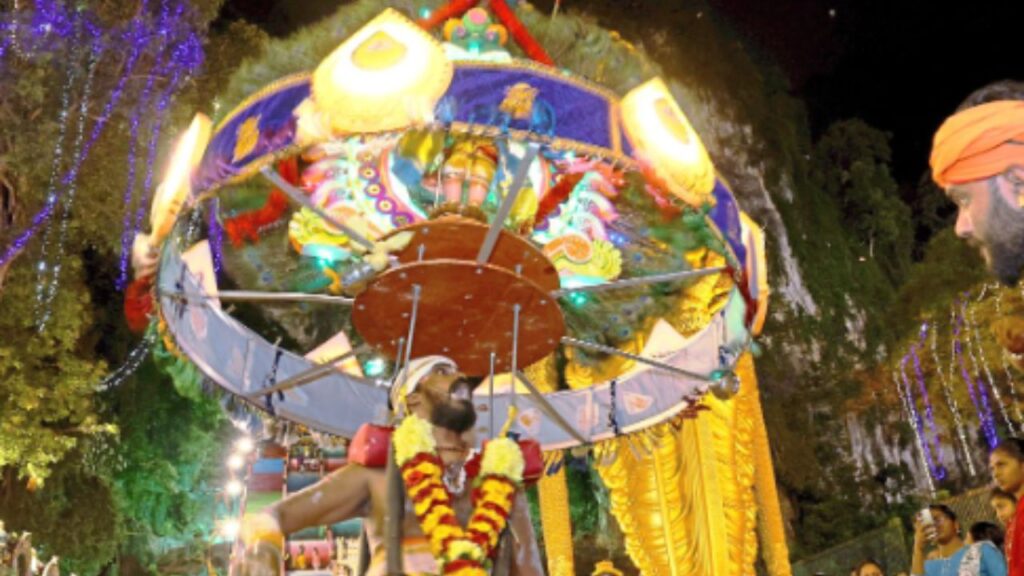
The act of carrying the kavadi is a form of penance and devotion, and it is done with the belief that it helps cleanse the devotee of sins and fulfill vows made to Lord Murugan. The journey of carrying the kavadi is often undertaken in a procession, with devotees chanting hymns and participating in the vibrant and spiritual atmosphere of Thaipusam. The festival is celebrated with great fervor and is a significant cultural and religious event for Tamil Hindus, especially in regions like Tamil Nadu and Malaysia.
Conclusion:
Thaipusam stands as a vibrant testament to the unyielding faith and devotion of the Tamil Hindu community. The festival’s rituals, music, and acts of self-mortification create a unique and unforgettable experience for both participants and observers alike. Thaipusam serves as a powerful reminder of the enduring traditions that connect individuals with their spirituality, and it continues to be a significant cultural celebration that transcends borders and unites people in their shared reverence for Lord Murugan.
